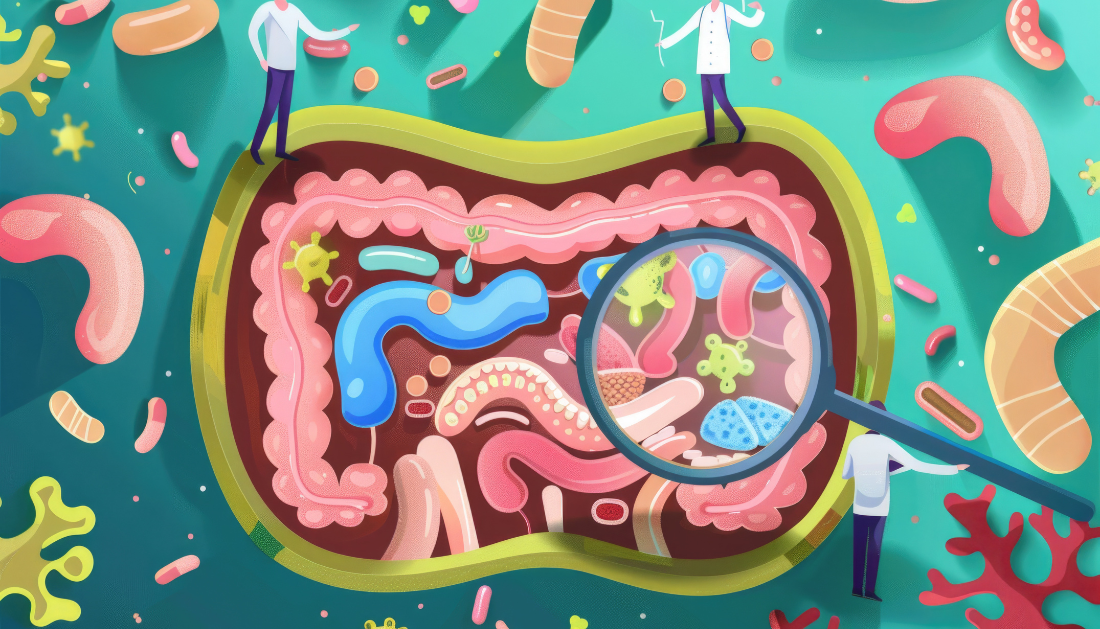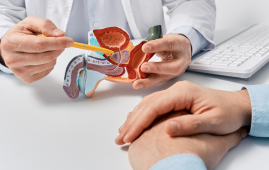

In a recent study published in Nature Mental Health, researchers identified brain-gut microbiome (BGM) patterns associated with stress resilience.
Background
Resilience refers to positive results in the face of difficult events or threats and includes change acceptance, persistence, negative affect tolerance, and the ability to recover from a traumatic incident.
Research has mostly focused on the relationships between resilience and personality traits, social factors, and behavioral/emotional control mechanisms.
The content and function of the human microbiome have been associated with stress-related illnesses. The gut microbiota influences psychological functioning via the BGM system and has been linked to stress resilience.
This shows that the microbiome may include metabolites with medicinal properties. However, no study has identified a comprehensive biochemical profile of resilience.
Gut Microbiome – Study
The current study looked at the link between resilience, clinical phenomes, brain features, and microbiome function. This was a secondary data analysis that combined findings from two previous research. Participants were recruited from a Los Angeles community.
Individuals were excluded if they had neurological disorders, underwent abdominal surgery, had psychiatric illnesses, used substances, used antibiotics or probiotics, or were pregnant or breastfeeding, among other things.
All participants received multimodal brain magnetic resonance imaging (MRI), submitted stool samples, and completed questionnaires.
Body mass index (BMI), physical activity, Connor-Davidson resilience scale (CD-RISC), socioeconomic status, state-trait anxiety inventory (STAI), perceived stress scale (PSS), hospital anxiety and depression scale (HADS), positive and negative affect schedule, diet, and patient-reported outcomes measurement information system (PROMIS) sleep scale were all included in the questionnaire.
Other assessments included a patient health questionnaire, coping strategies questionnaire, everyday discrimination score, behavioral inhibition/approach system, five facet mindfulness (FFM), multiple ability self-report questionnaire (MASQ), pain catastrophizing scale, early trauma inventory, visceral sensitivity index, pain vigilance and awareness questionnaire, international personality pool (IPIP), and normal personality assessment. DNA was taken from feces samples to sequence the 16S rRNA gene.
Furthermore, fecal samples were processed and ran through a worldwide HD4 metabolicomics platform. RNA extraction and meta-transcriptomic sequencing were completed.
The team used data integration analysis for biomarker development, employing the latent components (DIABLO) approach to clarify relationships between clinical/behavioral, central (brain), and peripheral (metabolome, microbiome) indicators linked with resilience traits.
Findings
The cohort totaled 116 people, with 71 of them being female. There were no significant differences in alpha and beta diversities between high- and low-resistance (HR/LR) groups.
DIABLO study found a highly linked omics signature that differentiated people with poor and high psychological resilience. DIABLO identified 45 variables (13 clinical, three metabolomes, five resting-state functional MRI, six structural MRI, two diffusion MRI, and 16 transcriptome variables).
The clinical variables were IPIP neuroticism and extraversion, HAD anxiety and depression, STAI anxiety, MASQ verbal memory, attention, visual perception, and language, PSS score, FFM total score, and non-judgment and descriptive sub-scores.
The HR group had higher mean levels of mindfulness and extraversion, but lower average levels of neuroticism, anxiety, concentration problems, verbal memory, language, visual perception, and felt stress than the LR group.
Creatine, dimethylglycine (DMG), and N-acetylglutamate (NAG) were among the metabolic variables examined. On average, the HR group had greater NAG and DMG levels than the LR group. Creatine levels were similar among groups.
In brief, the HR group had higher average levels of bacterial transcriptomes associated with genetic propagation, anti-inflammatory activity, metabolism, and environmental adaption.
The HR group had lower average levels of all structural MRI features and greater levels of all resting-state functional MRI features.
Among diffusion MRI findings, the HR group had less mean bilateral subcallosal gyrus connections, but more connections between the right hippocampus and (the right) lateral orbital gyrus. Two CD-RISC characteristics (persistence and control) were significantly associated with these DIABLO variables.
Conclusions
The study found that many BGM markers might distinguish HR people from LR subjects. The HR group demonstrated adaptive psychological characteristics, neuronal markers supporting cognitive-emotional links and emotion management, and microbiome activity that promotes gut health.
Notably, the two groups were the most clearly distinguished by bacterial transcriptomes. The findings imply that the gut microbiome and brain characteristics promote stress resilience.
For more information: An E, Delgadillo DR, Yang J, et al. (2024) Stress-resilience impacts psychological wellbeing as evidenced by brain–gut microbiome interactions. Nat Mental Health,. doi: 10.1038/s44220-024-00266-6.
more recommended stories
 Breast Cancer Prognosis Linked to High-Fat Diet
Breast Cancer Prognosis Linked to High-Fat DietKey Points A high-fat diet accelerated.
 CTNNB1 Syndrome Study Explores Beta-Catenin Defects
CTNNB1 Syndrome Study Explores Beta-Catenin DefectsKey Takeaways Researchers in Spain are.
 Advanced Prostate Cancer and Serial ctDNA Analysis
Advanced Prostate Cancer and Serial ctDNA AnalysisKey Takeaways Serial liquid biopsies using.
 Tuberculosis Breakthrough with Experimental Antibiotics
Tuberculosis Breakthrough with Experimental AntibioticsKey Takeaways Experimental antibiotics disrupt a.
 National Healthy Longevity Trial Receives Federal Support
National Healthy Longevity Trial Receives Federal SupportKey Summary Up to $38 million.
 Vascular Health Linked to Early Alzheimer’s Brain Changes
Vascular Health Linked to Early Alzheimer’s Brain ChangesKey Takeaways Brain vascular health is.
 Red Blood Cells Improve Glucose Tolerance Under Hypoxia
Red Blood Cells Improve Glucose Tolerance Under HypoxiaKey Takeaways for Clinicians Chronic hypoxia.
 Nanoplastics in Brain Tissue and Neurological Risk
Nanoplastics in Brain Tissue and Neurological RiskKey Takeaways for HCPs Nanoplastics are.
 AI Predicts Chronic GVHD Risk After Stem Cell Transplant
AI Predicts Chronic GVHD Risk After Stem Cell TransplantKey Takeaways A new AI-driven tool,.
 Red Meat Consumption Linked to Higher Diabetes Odds
Red Meat Consumption Linked to Higher Diabetes OddsKey Takeaways Higher intake of total,.

Leave a Comment